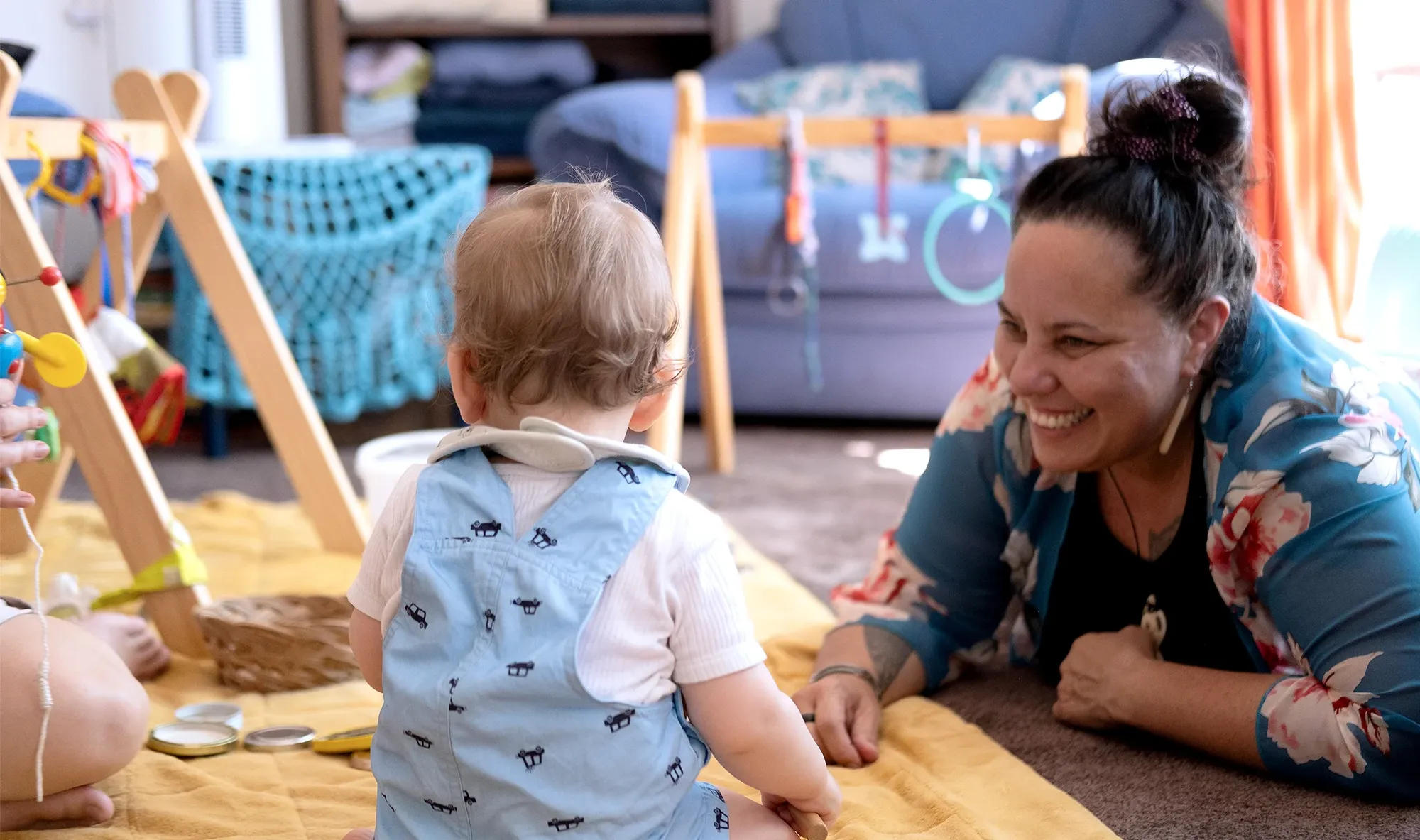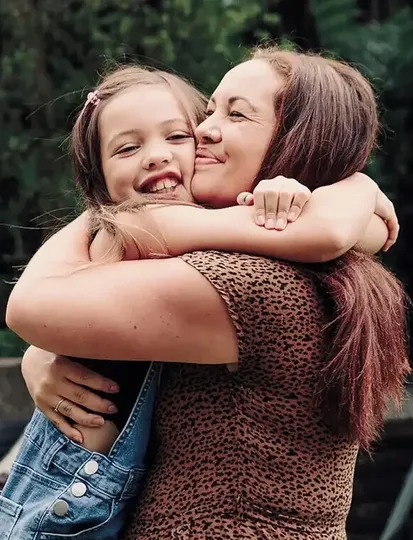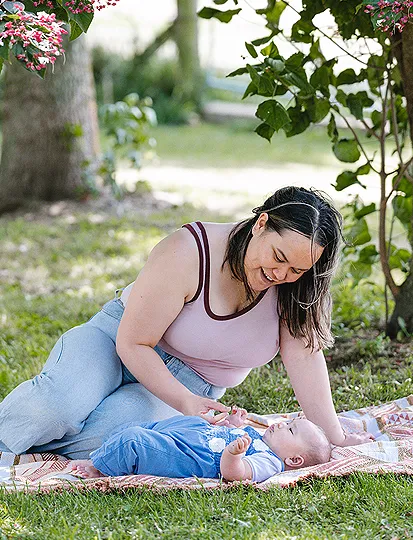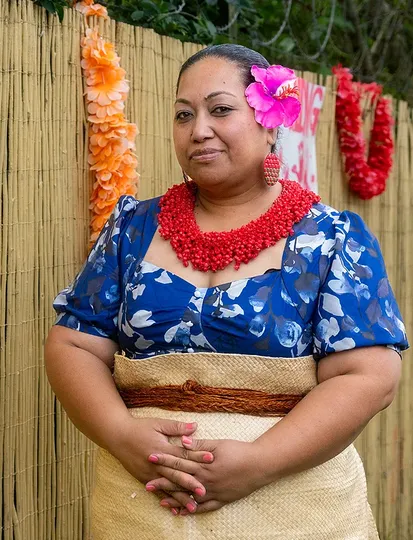Frustrated by the lack of support for new Māori mothers and the many roadblocks of the health system, Dr Aria Graham developed Mamia – a special place for māmā, pēpi and whānau.
When Dr Aria Graham describes the physical space, the wraparound care and the wairua of Mamia, it’s as if her not-for-profit initiative in Waipatu, Hastings, is a person. A woman, to be more exact. A māmā herself, perhaps – someone who embodies love and kindness, nurturing and nourishment.
“She’s had a lovely fresh coat of paint, we’ve opened her doors to let the air and the sunshine in, and she’s just taken off!” begins Aria (Ngāti Kahungunu, Ngāti Porou, Samoan).
Situated within Waipatu Marae, a series of upcycled sheds and containers (some of which have been moved off the Te Aute property Aria shares with her husband, Dr James Graham) make up Mamia, a place for mothers and babies to come and to be. They might arrive for a chat and some kai, a movement class or health seminar, or to hand their baby over and go for a sleep.
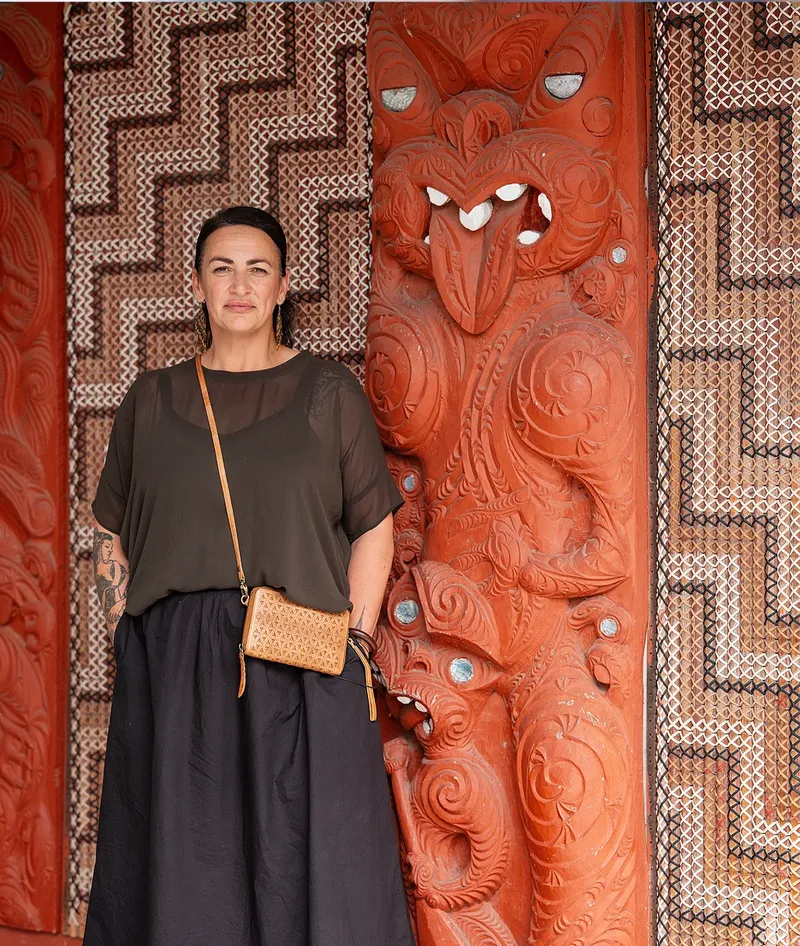
Dr Aria Graham
A home away from home
“The idea was to create a living area as well as a place to eat together, because often that’s where connections and great conversations happen, while you fill your belly with something shared and nutritious. There’s always a pot on the stove, there’s a place to shower and take a nap, and plenty of aunties and nannies around to look after pēpi so māmā can have a rest,” explains Aria.
“Some of the wāhine who come to Mamia are living in emergency housing, in challenging and complex situations, or will come in saying, ‘I’m just so tired that I can’t think straight.’ We’re here for them, to give them the respite that they need in that moment.”
Aria has a PhD thesis focused on maternal wellbeing using kaupapa Māori methodology, which informs her work at Mamia. She also has a nursing background and has seen first-hand the struggles some māmā experience when their ‘village’ is in disarray, and the subsequent impact on tamariki.
Further challenges arise, she says, when a child is neurodivergent or cognitively or behaviourally impacted. Aria’s idea was to create a service and place, within Mamia, for whānau to go to for support through kōrero, guidance and whānau-centred tools. With James, who holds a PhD in Māori education, Tākuta Tamaiti was developed, supported by MAS Foundation.
Dr Julie Wharewera-Mika (Head of Foundation) says, “When whānau are trusted to lead with their own mātauranga, meaningful solutions like Mamia can grow, grounded in tikanga, shaped by aroha and responsive to the needs of the community. Supporting marae-based, community-led Māori initiatives is more than providing services; it’s about backing the strength and wisdom of people. It’s a step toward a future where tamariki are raised in the embrace of their culture, surrounded by whānau and supported to thrive.”
Mafi Funaki-Tahifote (Head of Foundation) adds, “Mamia is an exemplar of a flourishing community when communities lead and steer their own solutions. This aligns very closely with the Foundation’s value ‘tika, pono me te aroha’, which embraces the Samoan proverb ‘E fofō e le alamea le alamea’ (Let the issues within the communities be resolved by those in the communities), recognising solutions are within communities.”
Read more
Read more grant stories
Enquire for funding
We are committed to improving health and wellbeing for people in Aotearoa New Zealand. We see our role as backing great people doing great things.
Enquire